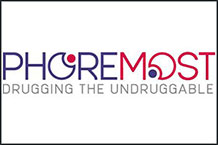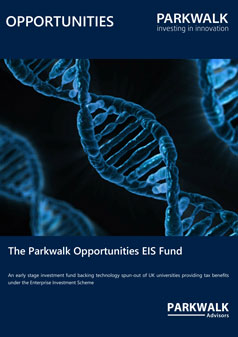|
We are delighted to announce that Parkwalk has closed an investment in Phoremost, a Cambridge.....
|
|
|||||
 |
|
|||||
|
Dear , PhoreMost has developed a next-generation phenotypic screening platform called 'SiteSeeker' to identify the best new targets for future therapy, and crucially, how to drug them. This has the potential to significantly increase the diversity of novel therapeutics for cancer and other unmet diseases, where treatment options are currently severely limited. The Technology There has been considerable progress in identifying hundreds of underlying genetic causes in cancer and other human diseases over the last 10-years. However, most of these new candidate drug targets are not impacted by current drug discovery technologies, and they are seen as “undruggable”. The field of protein-protein interactions (PPIs) is relatively untapped for drug targets and Phoremost’s PROTEINi technology allows it to modulate protein-fragment shapes and to probe for functional drug sites. PhoreMost’s screening platform ‘Site Seeker’ can then identify ways in which these sites can be rapidly drugged with novel small-molecules with the same shape as the protein fragment. Hence it can identify disease targets (‘Site Secure’) and leads (‘Site Block’). The IP Phoremost now has 4 patents filed on its Site Seeker platform and 1 on a novel drug target. We would expect further IP to be developed and patented as further drug targets are discovered. The company has also developed 5 proprietary PROTEINi screening libraries and will develop more. The Market Opportunity The end result is intended to be the generation of targets and lead candidates which can be developed into clinical candidates, and eventually marketable drugs, in co-operation with drug companies. Phoremost is considering spinning these downstream opportunities out into separate companies but in any case they could generate upfront payments and development milestone payments. Hence Phoremost’s potential market is the broad drug market. Dr Chris Torrance, co-founder and CEO, was a founder of Horizon Discovery (LSE: HZD), which completed its IPO in March 2014, raising £37.8 million. Previously, Dr Torrance was Head of Oncology and Biology at the UK Biotechnology company Vernalis PLC (LSE: VER), where he was responsible for progressing several novel kinase oncology programs. Dr Torrance has a bachelor’s degree in Biomedical Technology from Sheffield Polytechnic; a PhD in Biochemistry from East Carolina University (U.S.A) and completed Post-Doctoral training in the laboratory of Professor Bert Vogelstein at the Johns Hopkins University (U.S.A), where he pioneered the use of X-MAN isogenic disease models in high-throughput screening and drug discovery. Professor Ashok Venkitaraman, co-founder and CSO, is the Ursula Zoellner Professor of Cancer Research at the University of Cambridge, Director of the Medical Research Council (MRC) Cancer Unit there and well-known for his work on breast cancer. Much of the work to validate PhoreMost’s approach in discovering the chemical probes to validate targets has been carried out in his laboratory in Cambridge. Ashok has worked extensively with industry, and has held scientific advisory board appointments with companies advancing biologic (eg., Cambridge Antibody Technology/MedImmune) or small-molecule therapies (eg., Astex, Sentinel Oncology) for cancer. Dr Jonathan Milner, Chairman, has provided considerable investment and support to over 30 companies and has assisted three technology companies to IPO on the London AIM Stock exchange. He is currently Deputy Chairman of Abcam plc, a non-executive director of Horizon Discovery, Frontier Developments and GeoSpock and Chairman of Axol Bioscience Ltd. Jonathan gained his doctorate in Molecular Genetics at Leicester University after graduating in Applied Biology at Bath. From 1992–95, he was a post-doctoral researcher at Bath, following which he worked at the University of Cambridge in the lab of Professor Tony Kouzarides studying cancer.
Phoremost has moved its technology on since Parkwalk’s first investment, through the University of Cambridge Enterprise Fund. The screening is now running at high-throughput scale and the PROTEINi libraries are yielding robust hits. It has also signed a number of collaboration deals and its first development deal with a major pharma player. We continue to believe that the technology could deliver significant breakthroughs in finding targets and leads for untreated or poorly treated diseases. The company’s model will potentially allow it to participate in the upside should any of the molecules the process generates make it to market. |
||
|
|||||
|
||
|
|||||

